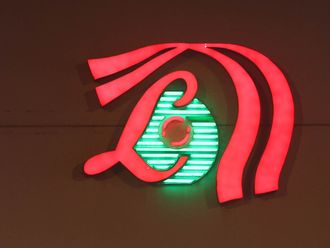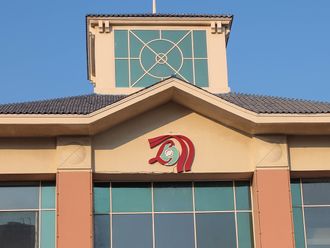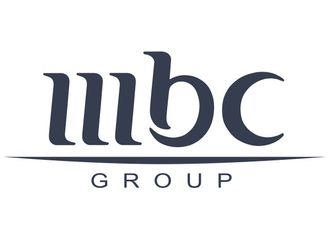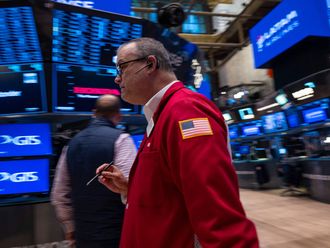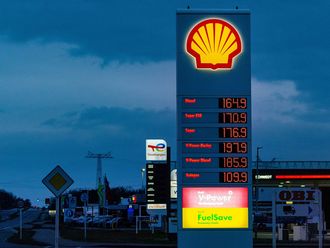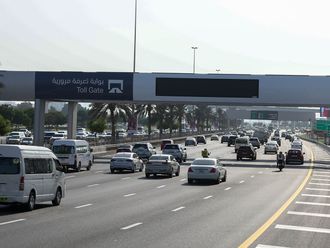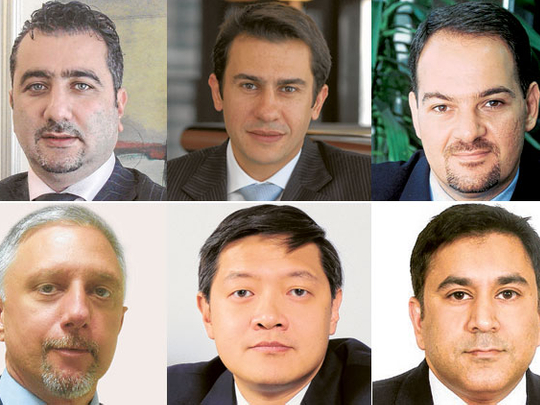
At the start of the New Year, international markets opened on a high. UAE markets also witnessed gains. Gulf News interviewed local investment managers and market analysts on the prospects of the UAE markets for 2011. A majority of them believe that they are likely to improve, though some have caveats added to their forecast.
Gulf News: Looking ahead, what are the prospects for the Dubai, Abu Dhabi and Nasdaq markets in 2011 when compared to this year?
Tariq Qaqish: Though we see a big potential for UAE markets to outperform in 2011, it will remain challenging and highly correlated to major international shocks such as: contagious effect of sovereign defaults, effect of potential currency war, and inflation threats. We are optimistic for 2011 for the foloowing reasons:
- from a top down, the UAE economy is likely to maintain its strong trend and expected to grow by 3.5 per cent in 2011 backed by high oil prices
- both DFM and ADX did not participate in global equity recovery due to the concern on Dubai debts. With this getting resolved, we expect investor to take more risk towards our region.
- corporate showed solid earnings in 2010 and expect to grow by 25-30 per cent in 2011. This will support the attractiveness of our markets.
- money supply is improving, which we think is a major factor for a recovery in the business cycle.
- the expected upgrade of UAE from frontier to emerging market for MSCI indices
- real estate sector is expected to stabilise in 2011
- The expected merger between DFM and ADX will provide one platform for institutional investors and attract new investors
- The introduction of new regulations on margins and short selling will provide investors more tools to optimise returns therefore higher liquidity.
Haissam Arabi: While equity outlook seems gloomy, yet happy surprises or catalysts may come through reforms. Attending to the real estate problem is the only way for a speedy recovery. Also, privatization led initiatives where proceeds can be used to invest in job creating projects is equally important for the recovery process. While valuations are indisputably the cheapest in the Mena and could in themselves offer a catalyst, especially if all GCC markets perform well in 2011, yet they remain a reflection of the dim prospects and confused sentiment.
Mohammed Ali Yasin: What is disturbing also is the low trading values that the UAE markets witnessed in 2010 where markets traded around Dh105 billion, compared to Dh243 billion in 2009, and Dh537 billion in 2008, Ie., in 2010 markets traded less than 20 per cent of 2008 levels!
It is imperative that those trading values improve in 2011 compared to 2010, otherwise the trend of brokerage companies closing in 2010 will become even faster in 2011.
In terms of indices, I believe that UAE markets will have a better second half of the year than the first, provided we don't get any new debt defaulting entities of a big size. I believe DFM index will close in positive territories around the 10-15 per cent range from 2010 closing. ADX index will not be far behind either, with the etisalt/Zain merger having a big impact on the index movement, buttrading values will continue to be the big question in 2011. NasdaqDubai will witness improvement in trading values too.
We will witness four to six IPOs during 2011 on all UAE exchanges, with some in new defensive sectors. However the success of these IPOs will be highly dependent on individual (retail and High Net Worth) participation and local banks lending subscribers in them.
Bruce Powers: When looking at the long term the Dubai and Abu Dhabi markets are still struggling to get off the bottom of a price range started in the first quarter of 2009. This is contrary to many international markets, and to some GCC markets, which have recovered nicely. Although stock markets in Bahrain and Kuwait are also struggling to recover.
The UAE exchanges have not been saved by strength internationally. There is still much concern about the status of the economic recovery and lagging issues in the banking, real estate and construction sectors. What happens to the UAE exchanges if international markets start trending down?
Technically we still have lower swing highs in the price action of the market indices for both UAE markets. NasdaqDubai is really too small to consider. Markets need to get above their 2009 highs before a long term bottom has been confirmed.
So, given the above, there's still a lot of uncertainty as to what happens over the coming year. As long as the major indices do not move below their 2009 lows, then I would expect we'll end the year higher than we are now.
Yong Wei Lee: We would expect the UAE markets to post stronger returns in 2011 compared to 2010. In 2010, the local markets were marred with debt concerns for UAE corporates. We expect most of these concerns to be resolved in 2011 and investors to start focusing on growth prospects again. Gains in the stock market, however, will likely be moderate instead of a strong run. This is because there is still a significant supply overhang in the housing market and this sector has a fairly large representation in the DFM.
Saleem Khokhar: Prospects for Dubai, Abu Dhabi and Nasdaq Dubai markets in 2011 are tremendous. There is a significant valuation differential between the UAE and other GCC markets and 2011 is likely to witness a number of catalysts that should unlock the deep discounted valuations that we see in many listed UAE companies. The potential for the UAE markets to rise by 20 per cent to 30 per cent in 2011 is high and some individual stocks have significantly higher upside potential. Catalysts for rerating of UAE stocks include resolution of Dubai debt concerns, upgrade of the UAE markets by MSCI to Emerging Market status, stabilisation of UAE property prices, maturing of the non-performing loans at UAE banks and availability of financing for UAE corporates.
Gulf News: What are the broad themes, including local ones, that are going to determine the prospects of stock markets here? How are these going to impact the market here?
Powers: Effects of the economic downturn remain, as we see now with Aldar Properties reportedly seeking financial assistance from the UAE government and Al Jaber Group renegotiating debt with its creditors. There are many other companies still in retrenchment and restructuring mode, including Dubai government-controlled entities. This will likely continue in 2011.
An important potential development to watch closely is the possible merger of the Dubai and Abu Dhabi exchanges. This would be a positive for the markets in the longer term and would probably help sentiment in the short term. Whether it happens or not is another matter. It's been rumoured for a number of years and would take some time to execute if approved.
A vibrant market includes new companies accessing capital markets via the initial public offering (IPO) process. The recent cancellation of Axiom Telecom's IPO does not bode well for new IPOs in the short term. A pickup in companies launching IPOs would be a positive sign for the markets, but more than one would be needed to indicate a trend. So far, there's been none in the UAE in almost two years. At this rate we may not see new IPOs until after the summer.
Yasin: I hope that we will see the markets consolidate into "The UAE Exchange", and that they get included in the MSCI Emerging market index, but not at any cost! Oil prices continuing to average above $70 (Dh257.46) per barrel for 2011 is important to ensure that governments spending continues for the year, and that surplus feeds the counties current accounts to insure that international liquidity flow to the economy stays bullish and strengthens the recovery of the economy.
A strong US dollar will mean strong UAE dirham, and means more belief in recovery of the US economy, and more positive momentum which will reflect positively on our markets.
Increased confidence in UAE economy and businesses honoring their commitments, and their abilities to access liquidity whether from local or international banks, will result in lower EIBOR (Emirates Inter-Bank Offered Rate) which will support better leading conditions for local companies and trickle the positiveness to SMEs (small and medium enterprises) in the UAE.
Arabi: Broadly speaking macro themes remain poor, though the general UAE economy is definitely improving and well on its way to recovery. The problem is in the makeup of local equity markets and not the economy. The bulk of all UAE markets remain within either real estate and construction or in banking. Real estate prices continue to drop and funding gaps remain major challenges not to mention a huge over supply of properties.
While on the other hand, banks are not seeing any major growth in deposits or lending portfolio and provisioning is still a worry among investors. Those two sectors represent more than 60 per cent of market cap and therefore we see difficulty in attracting investor interest which would be required to push prices and indices higher.
Khokhar: As we begin 2011 the global macro environment has improved significantly. IMF forecast is for 4.2% World GDP growth in 2011 and China has already increased interest rates to cool an overheating property sector. The quantitative easing policy being employed by Western governments should underpin hard assets and provide a boost to equity markets. For regional markets the implications are that we should see sustainable high oil prices resulting in surplus fiscal positions for GCC Governments. This in turn will lead to greater political stability, higher government spending and higher overall economic growth. The improving macro environment coupled with low interest rates, rising liquidity in the banking system, better company fundamentals and improving investor sentiment will likely support rising stock markets.
Notable concerns are the European debt crisis, the stubbornly high employment rate in US, a possible sharp and sustained rise in treasury yields, widening Credit Default Spreads and rising inflation in emerging markets.
Qaqish: Although we have less than 100 companies listed, the market is concentrated in two sectors (financials and real estate) compromising more than 75 per cent of total market cap. Market is in need to diversify more into other sectors, such as energy, consumer staples and utilities, but most importantly listing companies that attracts liquidity to make it viable for portfolio managers to invest in.
Gulf News: Which sectors are going to do well and which do you think will be flat or perform not so well when compared to others?
Yasin: I believe banking sector will be the best performer in UAE markets, specially during H2 2011. Telecommunication sector will be second, provided the etisalat/Zain merger goes through with favourable valuation and without stretching etisalat finances to limits where by it negatively affects it's dividend distribution capabilities. du in my opinion will carry the gains in that sector in 2011. Real estate will continue to struggle overall with the exception of Emaar, as it is cash flow model will help it continue to grow it's profits during the year.
We will get some interesting sectorial and market movements if the IPO market recovers, and we could have some new active stocks and favourites with the investor community.
Arabi: Sectors that will do well remain the same for at least first half of the year. Defensives like logistics (Aramex), transportation (DP World on Nasdaq) and telecomes (etisalat and du). For the second half of the year we might see a pick up in banks if quarter on quarter results start to show real bottom line growth coupled with growth in deposits, a drop in NPLs and an increase in broad money supply.
On the other hand, one company that represents a pure bottom up specific opportunity that is deep in the value which remains unlocked is RAK Ceramics. With subsidiaries worth more than the parent company and IPOs to unlock value expected in 2011 including a coal mining operation that reduces production costs in the future, not to mention a high dividend yield play. RAK Ceramics is a screaming buy but unfortunately it does not get its fare share of coverage by analysts and prime brokers.
Powers: The stock markets are forward looking in regards to prospects for the economy and company fundamental performance. Even though real estate, insurance and construction sectors have been beaten down, they will likely find a bottom in 2011 and could see a mild recovery. The banking sector in Abu Dhabi looks stronger than in Dubai, as well as the industrial sector. But, the two sectors I like the best are telecom and transportation.
Lee: Banks could see promising gains this year on the back of peaking provisions, which should boost earnings for 2011. This is likely to be most prevalent among the banks in Abu Dhabi.
Khokhar: In the UAE at a sector level the highest upside potential is exhibited by banks and real estate companies. Telecom and transportation companies remain attractive but to a lesser degree.
Last year was a tough one
Last year saw UAE markets struggling, more so the Dubai Financial Market. Characterised by low volumes and troubled sectors of banking and real estate, which make up a major part of the index, DFM was the worst performing market in the region and the second worst in the Mena. The DFM General Index had closed at 1803.52 on December 31, 2009. At the end of 2010, it was close to 200 points or 10 per cent down to 1630.52.
Abu Dhabi performed better than Dubai in 2010, but it also ended lower—0.87 per cent—than its December 2009 closing of 2743.61.
Have your say
Have you invested in the UAE stock market? Which factor will be the most influential in
determining the market’s success?


